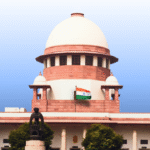Criminal Procedure – Transfer of Investigation – Quashing of Final Report – Discharge Application – Prevention of Corruption Act, 1988 – Indian Penal Code
(2025) 7 KCD 212 : 2025 KER 53940
High Court of Kerala
Justice A. Badharudeen
Criminal Miscellaneous Cases No. 10650 of 2024 and 10620 of 2024 on July 21, 2025.
These petitions arose from Crime No. 712/2004 of Perinthalmanna Police Station, Malappuram, leading to C.C. No. 70 of 2016 and C.C. No. 71 of 2016 before the Enquiry Commissioner and Special Judge (Vigilance), Kozhikode.
Allegations: The prosecution alleged that the accused (A1 – Headmistress, A2 – Teacher Sri. Saji V. John), as public servants entrusted with students’ Sanchayika savings fund at Fathima U.P. School, Pariyapuram, from 2002 to 2004, abused their official position. They were accused of criminal misconduct, dishonestly and fraudulently misappropriating funds by making false entries in Sanchayika fund records.
In C.C. No. 70/2016, an amount of Rs.17,115/- was allegedly misappropriated between July 15, 2002, and July 14, 2003.
In C.C. No. 71/2016, an amount of Rs.57,089/- was allegedly misappropriated between July 15, 2003, and March 31, 2004.
Offences alleged were under Section 13(1)(d) read with 13(2) of the Prevention of Corruption Act, 1988, and Sections 403 and 409 read with Section 34 of the Indian Penal Code.
Petitioner’s Contentions:
The petitioner sought to quash the Final Reports (1/15 and 2/15, both dated January 23, 2015, on FIR VC 8/2005/MPM dated August 18, 2005) and all further proceedings in C.C. No. 70/2016 and C.C. No. 71/2016.
The petitioner also sought to set aside the order dated September 13, 2021, in C.M.P. No. 150/2021, which dismissed his discharge petition.
A key argument was a procedural lapse: the initial investigation was ordered under Section 156(3) of the Cr.P.C. by the Judicial First Class Magistrate Court-I, Perinthalmanna, to the Station House Officer, Perinthalmanna police station. The Vigilance and Anti-Corruption Bureau (VACB) subsequently took over the investigation without, as alleged, any official communication or order from superior police officers or the court for such transfer. The petitioner relied on the Special Judge’s own observation, quoting Bency N.L. v. Dr.Preceline George and Others [2010 (2) KLT 993], that it is not permissible for an investigating agency to transfer an FIR to another police station if an order under Section 156(3) has been passed, especially on grounds of territorial jurisdiction.
The petitioner also contended that not all prosecution records were furnished to him, citing the Supreme Court’s decision in Criminal Trials Guidelines Regarding Inadequacies and Deficiencies, in RE.. v. State of Andhra Pradesh and Others [(2021) 10 SCC 598] regarding the furnishing of all materials, including those not relied upon, to the accused.
Prosecution’s Contentions:
The Public Prosecutor argued that the petitioner had accepted documents from the final report in 2016, conceded to the Special Court’s jurisdiction, and did not raise objections regarding document supply.
The discharge petition was filed belatedly, after charges were framed and PW1 (a witness) had been partially examined. The Special Court had rightly dismissed it, as a criminal court cannot revert to the pre-charge stage after framing charges and commencing witness examination.
Regarding the transfer of investigation, the Public Prosecutor produced documents showing that the Director General of Police had addressed the Director, Vigilance and Anti-Corruption Bureau on May 20, 2005, forwarding the CD file of Crime No. 712/2004 for further action. This was based on requests from the Inspector General of Police, North Zone, Kozhikode (May 6, 2005) and the Superintendent of Police, Malappuram (January 31, 2005), requesting the transfer of the crime to the VACB. Therefore, the Vigilance investigation was properly directed.
Court’s Findings and Decision:
The Court found that the Special Judge’s dismissal of the discharge petition was justified because it was filed after the framing of charges and the commencement of witness examination (PW1 partially examined). A criminal court lacks the power to review its order by reverting to the pre-charge hearing stage.
Regarding the procedural lapse in investigation transfer, the High Court clarified the ratio of Bency N.L. v. Dr.Preceline George and Others. It held that the Special Judge’s interpretation, as extracted in paragraph 11 of Annexure A8, was erroneous. The Bency case did not lay down a general rule preventing transfer, but specifically disallowed transfer of an FIR to another police station on the premise that the offense was committed beyond its territorial jurisdiction when part of the occurrence was still within the jurisdiction of the initially ordered police station.
Crucially, the High Court noted that the investigation by the Vigilance and Anti-Corruption Bureau was, in fact, directed by the Director General of Police and subsequently ratified by the Magistrate by forwarding records to the Special Court. Thus, the procedural lapse pointed out by the petitioner could not be found, prima facie.
Considering that the trial and examination of witnesses had already commenced, the pleas for discharge after framing charges and quashing the entire materials would not succeed. The request for a pre-charge hearing at this stage was also not justifiable.
Conclusion: Both petitions were dismissed. The Special Court was directed to complete the trial in these 2016 matters, which arose from a 2004 crime, at the earliest, within a period of three months from the date of receipt of the order copy. The interim stay deferring the trial was vacated.


